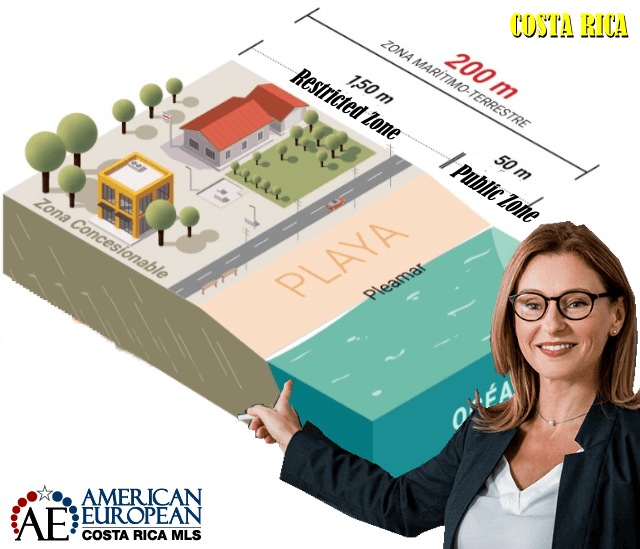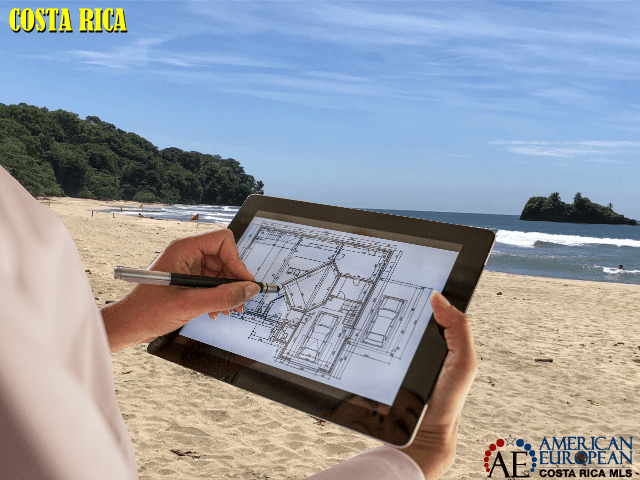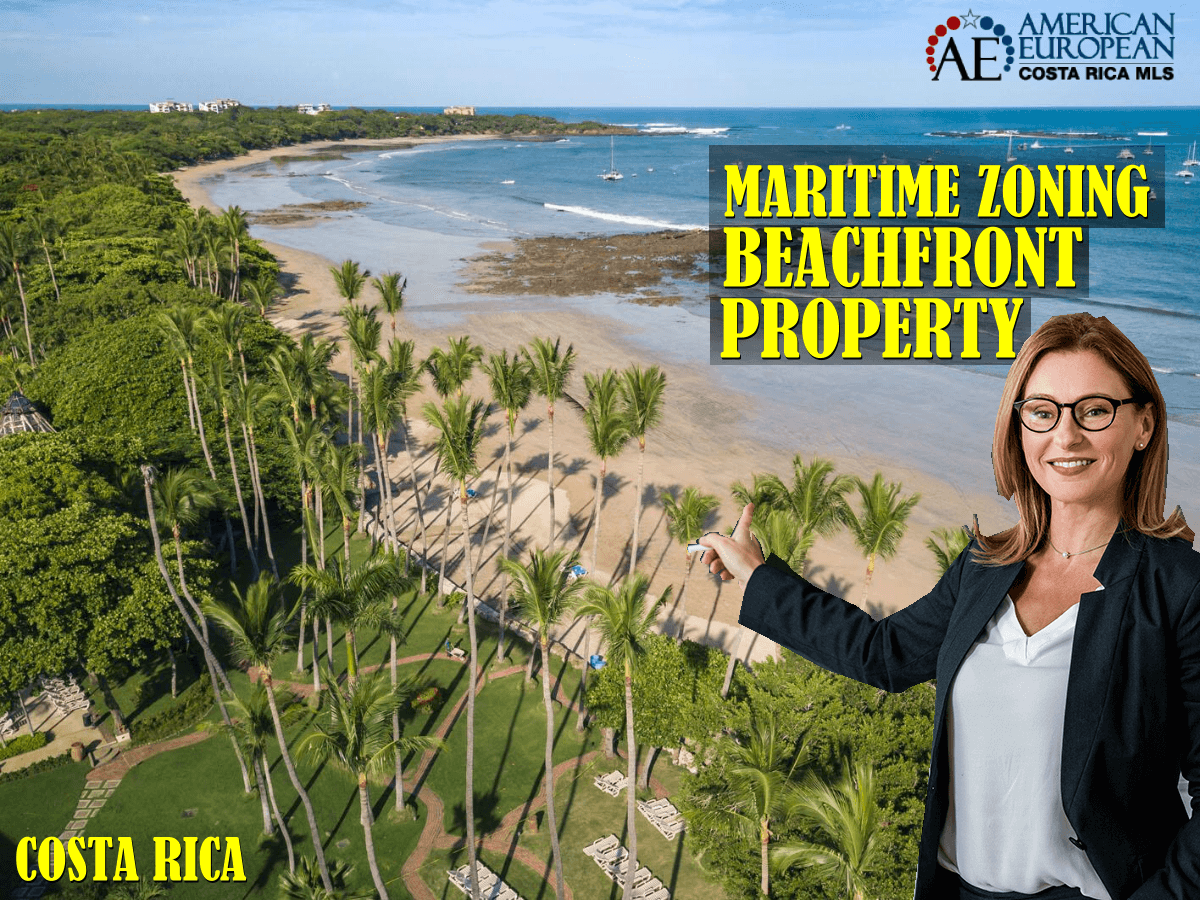Costa Rica beachfront property and maritime zoning are regulated by Law N° 6043 and its Regulations. First, read this article if you want to buy Costa Rica beachfront property. Then, if you still have questions, contact a real estate lawyer specializing in concessions.
Maritime zoning
In a nutshell, this is how maritime zoning functions:
The Maritime Zone is the first 200 meters from the high tide line. The Public Zone is the first 50 meters from the average high tide line. The government owns the Public Zone, so you cannot own land there, except in certain special cases. So, you can purchase fully titled beachfront property, beach view property, or within walking distance of the beach without worrying about maritime zoning.

Whether purchasing beachfront property to live in or as an investment, you should know the pros and cons of beach concession.
Also, if you want to purchase land ON the beach, it will not be titled (as a rule). Costa Rica’s beaches are public property. So, if you want to build or buy a beachfront home or business, you should familiarize yourself with the special rules regarding a beachfront property in Costa Rica. Take your precautions and make sure you check on all the beachfront property restrictions.
The Maritime Zoning Law for beachfront property
With over 800 miles of coastline, it was necessary to regulate beachfront property. The 1977 Maritime Zoning Law (Ley sobre la Zona Marítimo-Terrestre – Ley Numero 6043) regulates beachfront property ownership and usage in Costa Rica. The law creates two zones along our Pacific and Atlantic coasts. Islands are also subject to this law. The government owns this “Maritime/Terrestrial” restricted zone, and local governments (municipalities) administer it.
The law measures from the high tide mark inland. There are two zones with a total width of 200 meters along the beachfront (see the image above):
The Public Zone (Zona Pública)
This is a 50-meter wide strip of beach between the high tide line and the outer line of the “Restricted Zone” (Zona Restringida). This beachfront zone is open to the public. Private possession or occupation of this area is strictly prohibited. This is why you will find access to the Public Zone everywhere. However, no one may trespass on private property or the restricted zone to reach the public zone.
The Restricted Zone (Zona Restringida)
This is a 150-meter wide strip of beach from the limit of the Public Zone inland. The law allows the government to grant leases, called concessions, for the occupation and use of this beachfront area for terms that range from 5 to 20 years. This is the land that homes or businesses along the beachfront may use for personal or monetary gain. The restricted zone will allow certain buildings. Those buildings will revert to the municipalities (local Governments) at the termination of the lease unless the lease is extended between the parties. It’s good to know that the municipalities rarely don’t renew an existing concession.
How concessions for maritime-zoned beach property function
The National Geographic Institute (Instituto Geográfico Nacional) used to be a division of MOPT (Ministry of Transport and Public Works). Since April 2013, the National Register has been in charge of Costa Rica’s maritime zone. The Costa Rican authorities cannot grant building permits for beachfront property development if the zone is not marked and a development plan has not been drafted and approved.
The local Municipal government grants and administers the government beach concession for possession of land with maritime zoning. The Instituto Costarricense de Turismo (ICT) authorizes leases on the Restricted Zone. The Registry of Concessions in the National Registry in San José records all concessions.
Concession owners must meet the following requirements:
- Be a legal resident for at least five years
- Be a Costa Rican citizen
- Or Costa Riacn corporations with at least 50% Costa Rican ownership

Concession Term
The local municipality grants these concessions or leases for five to twenty-year terms. Once the concession (lease) has been approved, it is registered in a special Concession Registry in the National Registry. You can search the National Registry website “Por Número de Finca o Concessión.” The municipality charges a yearly fee for the duration of the lease. Failure to pay may terminate the lease and result in the loss of any buildings on the property.
Just like the beaches of Costa Rica have a restriction, any waterfront property in Costa Rica has restrictions. For instance, rivers and lakes also have setbacks and restrictions for building a boat dock for example.
Who to contact
Costa Rican beachfront property has certain restrictions and you should know about it before purchasing. Therefore, contact a specialized attorney or check on the ICT website, which offers a ton of good information about the “zona marítimo terrestre“.
When you purchase beachfront property in Costa Rica, ensure that a knowledgeable affiliate real estate agent assists you. You can contact them here NOW.


















